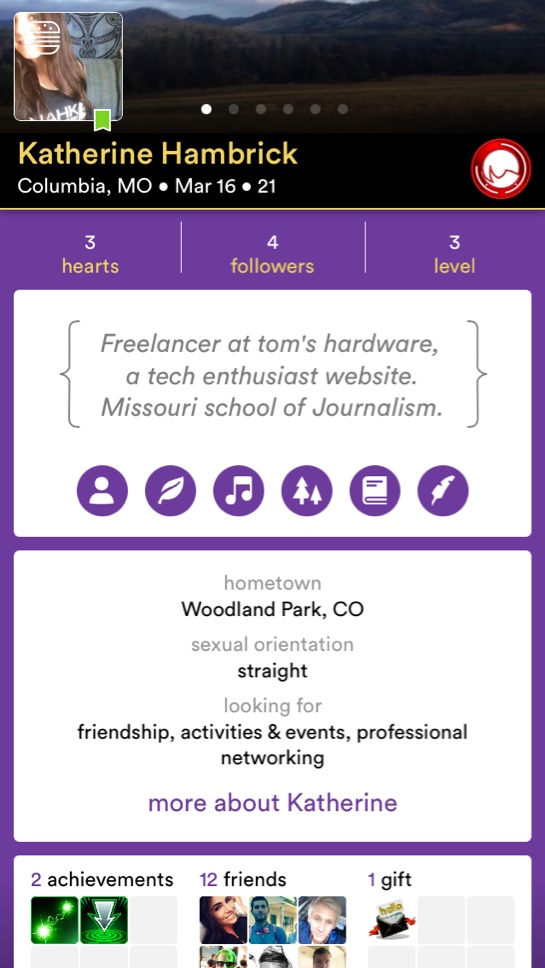New 'Hello' Social Network Backed By Google
With new startups coming out of Silicon Valley a mile a minute, it's hard to catch on to an idea that won't crash and burn; after all, there are only so many glorified versions of Bejeweled one can play before it becomes monotonous. The same goes for social media; realistically, how many times a day do we need to update different pictures, profiles and posts on Instagram, Facebook and Twitter before it becomes a chore akin to doing the dishes?
Orkut Buyukkokten, a former Google veteran of 10 years, hopes that his new social network "Hello" has staying power. Orkut, with the help of some hefty investments from investors -- including Google itself -- hopes to make a social network that changes the way social media is done, by having users share content almost exclusively through their specific interests and passions.
"My biggest passions are computers and people," Orkut told Tom's Hardware recently after a presentation on his new social network. "And I just want to connect people with their passions."
The sentiment seems genuine. Orkut's slight build belies his energy and enthusiasm, and though his presentation was rehearsed, he came off as genuinely excited about Hello.
He started off the presentation with a video, rife with young, white millennials who dance in slow motion and ride shopping carts seemingly in the middle of the desert. His description of the personality types -- these 100 "personas" -- and the gaming aspect of Hello felt convoluted and complicated. But we had yet to see the app itself.
The App (Yes, An App)
Hello combines the social networking structure of Facebook with the forever-scroll design of Twitter and Instagram, a karma point/karma decay system of Reddit, and the exclusivity of Google+, all while sticking its users in a game-like interface with points, coins, rewards and levels.
Hello integrates "gameification" into social media, but it's simultaneously rewarding in practice. The app allows you to give yourself something we would describe as "curated identity." After completing a 60-question test, you get one of 16 Meyer Briggs-like personalities, and then it seems to emulate The Sims 2 by giving you five "personas," which are essentially a Top 5 list of your interests.
Get Tom's Hardware's best news and in-depth reviews, straight to your inbox.
Those five, though, have to be picked from a list of 100 predetermined interests. They range from simple (cat lover, outdoorsman) to the slightly more obscure and questionable (stripper and Burner [as in Burning Man]).
As you post more content and generate more likes, comments, and shares, you earn more "points" and can in a sense "level up," like one would in a video game. The cynical might say, does this devalue interaction with other people, by making it a game of points and rewards? Why does this add to the social media experience?
"I feel like you get caught in a loop [in other sites]," said Ashley Pengilly, the Hello Community Marketing Manager. "Other networks to me feel like a chore, I have to update them to update my family, but this makes it more fun and refreshing."
As users level up, they earn coins, and these coins can be used to boost posts to more visibility, or to post something in "incognito mode." These coins can also be purchased outside of the game, with actual currency.
Execution, Limitations
As we stated previously, that all seems complex and convoluted; it took several paragraphs to even describe what Hello is, and how it works. It seems that the allure of and mechanisms to use a social network should be obvious and simple.
However, the actual execution was wildly different from what the sparklers and shopping carts led me to believe on the commercial.
Despite the app lagging so much (which, to be fair, may have been because I only had the chance to toy with the app on an iPod touch instead of a more powerful iPhone, and also because the app is still in alpha), and the user tutorial being hidden in the Settings, I found myself actually having fun.
In the first three hours I posted three pictures, all on my "base" profile, and also in my "environmentalist," and "outdoorswoman" profiles. Although I had just two "friends" -- both of whom were Hello reps -- and one "follower," all three of my posts garnered over 10 "hearts" and quite a few comments. I even had a few messages from strangers, which to my surprise were not at all creepy. This level of interaction is more than I typically see from my Facebook account, where I have hundreds of friends, as opposed to just two or three.


One of the main issues with Hello is a glaring one; it's only available on iOS 8.0 or later, iPhone 3GS or above. It's also compatible with the iPod touch and the iPad, though the lag is impossible to ignore. Orkut views the absence of Android as the company's biggest weakness after launching on iOS at Ohio University and the University of Missouri, though they plan to launch the app on Android in the next month.
"In San Francisco, iPhone to Android is about 80/20," Orkut said. "In the Midwest, we've noticed it's more like 50/50."
And though it's technically called "hello.com" (a domain given to the company by Google), it's also not available for use via the Web, which seems to be another significant issue.
One may question the need for another social media network, especially one available in such a limited capacity, but Orkut's past with Google and Google's investment in the company lends it some credibility. Ideally, Hello could fill a niche that is a mixture of anonymity, popularity and interest-based communication in social media, but the question Orkut and his team faces is whether or not that niche is big enough to make the new endeavor successful.
Follow us @tomshardware, on Facebook and on Google+.
-
spentshells Google, nobody wants to give you there personal information. We give that to facebook not you. You already collect our browsing habits.Reply -
alextheblue Exchange real money for coins... which can be spent to artificially boost advertiseme- I mean, posts. Or can be used to anonymously bully- I mean, comment. What could possibly go wrong!? This is completely lame, Google.Reply -
Drubuu I agree. The monetization "gamification" of this app will need to be axed if it wants to be adopted broadly.Reply -
Cees Timmerman Google seems to draw a lot of inspiration from Firefox: First browsing in "Chrome" (https://developer.mozilla.org/en-US/docs/Glossary/Chrome) and now socializing in "Hello" (https://www.mozilla.org/en-US/firefox/hello/). Good thing they still support "site:" in Google.Reply
